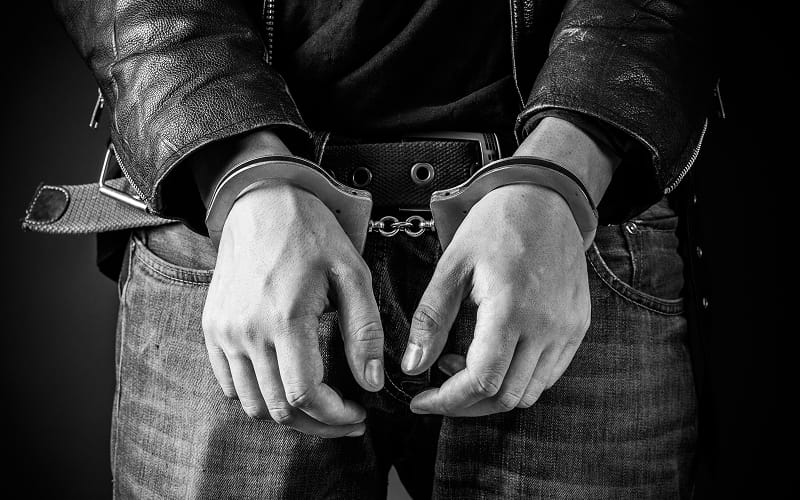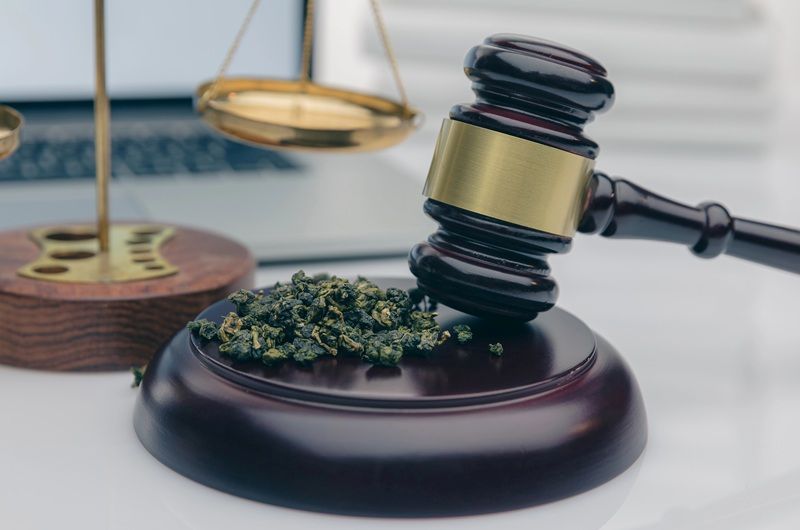A petty theft charge may seem minor, but it can leave a lasting mark on a person’s life. The legal consequences, including fines, possible jail time, and a criminal record, can create obstacles in employment, housing, and personal reputation. Many people facing this charge wonder whether it’s possible to reduce a misdemeanor to an infraction, which carries far fewer penalties.
Understanding the legal process and available options is the first step toward a better outcome. In Fairfax County, Virginia, the law does not provide a direct path for reducing a petty theft misdemeanor to an infraction. However, there are possible legal strategies that may achieve similar results. An experienced criminal defense attorney can assess the case and pursue alternatives such as charge reduction or dismissal.
This article explores the nature of petty theft, the differences between misdemeanors and infractions, and the legal strategies that may help minimize the impact of a charge.

Understanding Petty Theft In Virginia
Petty theft, also known as petit larceny, is the unlawful taking of property valued at less than $1,000. Under Virginia law, this offense is classified as a Class 1 misdemeanor, which is the most serious type of misdemeanor in the state. The law does not differentiate between shoplifting and other forms of petty theft. That means even taking an item from a store without paying can result in criminal charges.
The penalties for a petty theft conviction can be significant. A person found guilty may face up to 12 months in jail, fines up to $2,500, or both. Additionally, the conviction results in a permanent criminal record, which can have long-term consequences. A misdemeanor conviction can create hurdles for job seekers, students, and anyone undergoing background checks.
Beyond legal penalties, a conviction can carry a social stigma. Employers, landlords, and licensing boards may view theft-related offenses as crimes of dishonesty, which can make securing employment and housing more difficult.
Even if jail time is avoided, the lasting impact of a conviction can follow a person for years. This reality leads many to seek ways to reduce or minimize the charge to avoid a permanent record.
Distinguishing Misdemeanors From Infractions
The legal system classifies offenses into three main categories: felonies, misdemeanors, and infractions. Felonies are the most serious crimes, carrying harsh penalties, while infractions are the least severe and usually result only in fines. Misdemeanors fall in between, involving criminal conduct that may result in jail time.
A misdemeanor, like petty theft, is considered a crime that can result in a criminal record. Virginia law treats Class 1 misdemeanors with particular seriousness, meaning a conviction could include probation, mandatory community service, or even jail time. Unlike felonies, misdemeanors do not lead to lengthy prison sentences, but they can still have a lasting impact.
Conversely, infractions do not carry the possibility of jail time and do not result in a criminal record. Traffic violations, littering, and similar minor offenses fall under this category. If a misdemeanor could be reduced to an infraction, the consequences would be limited to a fine without the burden of a criminal history. This difference makes charge reduction an attractive option for those facing petty theft charges.
Possibility Of Reducing A Petty Theft Misdemeanor To An Infraction
A petty theft charge can feel overwhelming, especially when considering the lasting effects of a misdemeanor conviction. Many people facing this situation wonder if their charge can be reduced to an infraction. Infractions carry fewer penalties and do not result in a criminal record.
While Virginia law does not explicitly provide a process for reducing petty theft misdemeanors to infractions, there are still legal strategies that may help. The right defense approach can significantly affect whether a charge is reduced, dismissed, or results in alternative sentencing.
Prosecutorial & Judicial Discretion
Under Virginia law, petty theft (petit larceny) is classified as a Class 1 misdemeanor, meaning it carries the potential for jail time, fines, and a permanent criminal record. Unlike some other states, Virginia does not have a statutory provision that allows petty theft charges to be automatically downgraded to infractions.
However, prosecutors and judges have discretion in handling these cases. In some situations, defense attorneys can negotiate with the prosecution to reduce the charge to a lesser offense. These offenses carry lighter penalties and may not have the same long-term impact as a theft conviction.
Factors That Influence Charge Reduction
One key factor in securing a charge reduction is the defendant’s criminal history. First-time offenders with no prior record may have a better chance of obtaining a lesser charge or participating in a diversion program.
If the value of the stolen property is very low, this may also work in the defendant’s favor. Prosecutors are often more willing to negotiate when the case involves a minor offense, and the defendant has demonstrated remorse and a willingness to make amends.
Diversion Programs As An Alternative
Another potential avenue is participation in a diversion program. Some courts offer programs that allow first-time offenders to complete community service, theft prevention courses, or restitution payments in exchange for reduced charges.
Completing these programs may result in the dismissal of charges or a reduction to a non-criminal offense. However, these programs are not available in every case, and eligibility depends on factors such as the severity of the offense and local court policies.
While outright reducing a misdemeanor to an infraction is unlikely, it is still possible to mitigate the consequences of a petty theft charge. A strong defense strategy and skilled legal representation can increase the chances of securing a more favorable outcome. Those facing charges should seek legal counsel as soon as possible to explore their options.
Legal Strategies To Mitigate Petty Theft Charges
A petty theft charge can have consequences that extend far beyond the courtroom. Even if jail time is avoided, a conviction can leave a lasting mark on a person’s record, affecting employment, housing, and personal reputation. Fortunately, several legal strategies can help reduce the severity of the charge or even prevent a conviction altogether. The right approach depends on the specific details of the case.
Negotiating A Plea Deal
One of the most common ways to mitigate a petty theft charge is through plea bargaining. In exchange for a guilty plea, prosecutors may be willing to reduce the charge to a lesser offense, such as trespassing or disorderly conduct. This can significantly reduce the penalties, allowing the defendant to avoid the harsher consequences of a theft-related conviction. First-time offenders, in particular, may have a stronger chance of securing a plea deal if they demonstrate remorse and a willingness to take responsibility.
Seeking Alternative Sentencing
Many courts offer alternative sentencing options that can help avoid jail time and, in some cases, a permanent criminal record. These alternatives may include:
- Community Service. Completing a set number of volunteer hours to demonstrate rehabilitation.
- Restitution. Compensating the victim for any financial loss resulting from the theft.
- Theft Prevention Courses. Attending educational programs to prevent future offenses.
Completing these programs can sometimes result in a reduced charge or case dismissal. Courts often view these alternatives as constructive solutions, particularly for first-time offenders who are unlikely to re-offend.
Challenging The Evidence
A strong defense strategy involves carefully examining the prosecution’s evidence to identify weaknesses. If the prosecution cannot prove each element of the charge beyond a reasonable doubt, the case may be dismissed or result in a lesser charge. Common defenses include:
- Lack Of Intent. Arguing that the defendant did not knowingly steal the item.
- Mistaken Identity. Challenging witness testimony or surveillance footage.
- Unlawful Search & Seizure. Questioning whether law enforcement obtained evidence legally.
Every petty theft case is unique, and the best legal strategy depends on the facts and circumstances. A skilled defense attorney can assess the options and build a strong case to mitigate the charges. Taking swift legal action increases the chances of a favorable outcome and can help protect a defendant’s future.
How Fairfax County Criminal Attorneys Can Assist With Petty Theft Charges

Fairfax County Criminal Attorneys has a proven track record of successfully defending clients against petty theft and other criminal charges. Our experienced legal team understands the nuances of Virginia’s criminal laws and works tirelessly to protect our client’s rights. We believe in crafting defense strategies that focus on reducing charges and minimizing the long-term impact of a criminal record.
Our firm takes a client-centered approach, ensuring that every individual receives the attention and advocacy they deserve. We carefully evaluate each case, considering all possible defense strategies, from negotiating plea deals to presenting mitigating circumstances. If a reduction in charges is possible, we work aggressively to secure the best possible outcome.
Legal challenges can be overwhelming, but the right representation makes all the difference. Our team has decades of combined experience and is committed to providing strategic defense for individuals facing theft-related offenses. If you are facing a petty theft charge, don’t wait contact us today to discuss your case.
While Virginia law does not provide a straightforward path to reducing a petty theft misdemeanor to an infraction, legal strategies exist to mitigate the consequences. Plea bargaining, diversion programs, and alternative sentencing can help lessen the impact of a charge. Securing strong legal representation is essential in pursuing the best possible outcome.
Fairfax County Criminal Attorneys is dedicated to protecting the rights of individuals facing criminal charges. Our team works tirelessly to build strong defenses and advocate for favorable resolutions.




